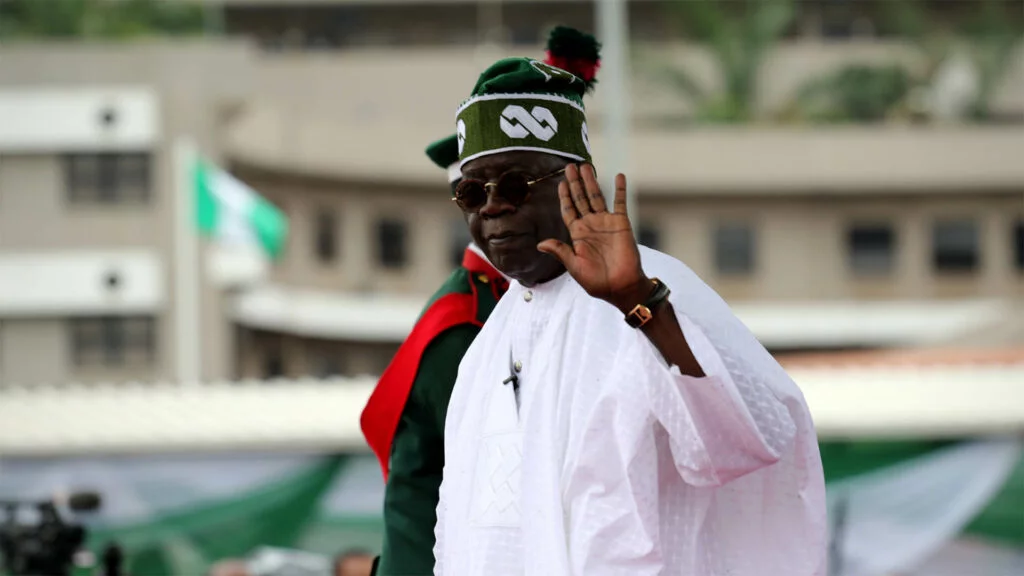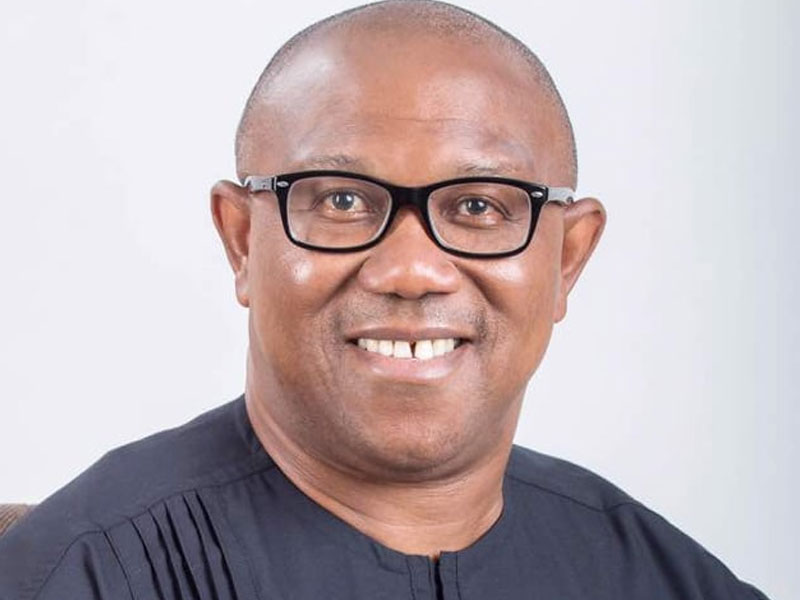
NIGERIA faces numerous challenges spanning security, governance, and infrastructure, profoundly impacting its citizens and the nation’s overall development. Under President Tinubu’s leadership, the government has made significant strides in addressing these pressing issues, demonstrating a strong commitment to national security, good governance, and infrastructure development.
This essay delves into the key priorities and initiatives of President Tinubu’s administration in tackling these challenges, highlighting the thought process behind their strategies and the proposed solutions to drive positive change and progress in the country.
Economy: revitalising Nigeria’s economic landscape
Issue: Nigeria’s economy struggles with persistent high inflation rates, soaring unemployment levels, and sluggish overall growth. These factors have hindered economic progress and exacerbated socio-economic inequalities.
Thought process: President Tinubu’s administration recognises the urgent need to revitalise the economy by fostering a conducive environment for investment, generating employment opportunities, and igniting sustainable economic growth. The administration prioritises targeted interventions to address key structural issues affecting the economy.
Solutions
Pro-business policies: The administration has implemented policies to ease regulatory burdens, enhance the ease of doing business, and attract domestic and foreign investment. This includes simplifying business registration processes and offering tax incentives to startups and small businesses.
Infrastructure investments: Significant investments in critical infrastructure projects aim to improve connectivity, efficiency, and productivity across various sectors. Projects like road construction, energy expansion, and digital infrastructure are pivotal in driving economic growth.
Entrepreneurship and innovation: The administration promotes entrepreneurship and innovation through targeted support programs, access to finance, and mentorship initiatives. By creating a conducive ecosystem for entrepreneurs, the government aims to drive job creation and economic diversification.
Economic diversification: Diversifying the economy by unlocking the potential of key sectors such as agriculture and technology is a priority. The government invests in modernising agricultural practices, enhancing value chains, and promoting technological advancements to harness growth opportunities in these sectors.
President Tinubu’s administration’s proactive approach to addressing economic challenges reflects a commitment to fostering long-term prosperity and inclusive growth. By advancing policies that promote investment, entrepreneurship, and diversification, the administration aims to lay a solid foundation for sustainable economic development and improved living standards for all citizens.
Security: ensuring national peace and stability
Issue: Insecurity remains a pervasive challenge, with threats from insurgency, banditry, kidnapping, and other criminal activities. These issues have resulted in community attacks, citizen displacement, and diminished trust in the government’s ability to provide security.
Thought process: The administration emphasizes national security as crucial for protecting lives and properties and preserving the nation’s unity and integrity. A strategic and proactive approach addresses the multifaceted challenges of insecurity.
Solutions
Enhanced security capabilities: The administration has bolstered security agencies’ capabilities through training, equipping, and logistical support, enabling effective responses to emerging threats.
Intelligence and information sharing: Strengthening intelligence networks, leveraging technology, and enhancing coordination among security agencies are key to pre-empting and disrupting criminal activities.
Border security: Securing the nation’s borders is essential to curtail illegal infiltration and prevent arms and insurgents’ influx. The government employs advanced surveillance technologies and collaborates with neighbouring countries on joint security initiatives.
Community engagement: Engaging with communities and addressing the root causes of insecurity is vital for sustainable peace. Community policing initiatives, conflict resolution mechanisms, and social development programs build trust and cooperation with local communities.
President Tinubu’s administration’s comprehensive approach to security underscores its commitment to safeguarding peace and stability, protecting citizens’ lives and properties, and fostering an environment conducive to national progress. By addressing the root causes of insecurity and building resilient institutions, the administration aims to ensure a secure future for all Nigerians.
Governance and corruption: upholding transparency and accountability
Issue: Corruption and governance challenges have plagued Nigeria, eroding public trust, compromising the rule of law, and impeding socio-economic development.
Thought process: The administration is committed to upholding transparency, accountability, and good governance. Recognising corruption’s detrimental impact, the administration prioritises combating graft, strengthening institutional integrity, and restoring public confidence in governance.
Solutions
Anti-corruption measures: The administration enforces anti-corruption laws and prosecutes offenders without fear or favour. High-profile cases are being brought to justice to send a strong message against impunity.
Promoting transparency: Enhancing financial oversight mechanisms, instituting open procurement processes, and increasing public access to information are critical to fostering accountability.
Citizen engagement: Engaging with civil society organisations, the media, and other stakeholders fosters dialogue, solicits feedback, and promotes participatory governance. Citizen oversight is crucial in combating corruption and promoting good governance.
President Tinubu’s administration aims to create a governance environment responsive to people’s needs, promotes the common good, and upholds high ethical standards. The administration’s unwavering commitment to combating corruption and advancing good governance is integral to its vision of a prosperous, equitable, and inclusive society.
Infrastructure: building a foundation for growth
Issue: Nigeria’s infrastructure is in a critical state, with inadequate transportation networks, unstable power supply, and limited access to clean water hindering economic growth and impacting citizens’ quality of life.
Thought process: The administration recognizes infrastructure development as crucial for driving economic growth, enhancing productivity, and improving living standards. Addressing the infrastructure deficit is vital for creating an enabling environment for businesses and improving citizens’ well-being.
Solutions
Transportation infrastructure: Investing in roads, bridges, railways, and ports improves connectivity, facilitates the movement of goods and people, and drives economic activity. Projects like the Lagos-Ibadan Expressway and the modernisation of the Nigerian railway network are underway.
Energy infrastructure: Expanding access to reliable and affordable energy is essential. The administration invests in power generation, transmission, and distribution to address the electricity deficit and promote industrial growth
Water supply infrastructure: Ensuring access to clean and safe water for all citizens improves public health, enhances sanitation standards, and increases community resilience.
Public-private partnerships: Leveraging public-private partnerships mobilises additional resources, harnesses private sector expertise, and accelerates project implementation. Collaboration with private investors unlocks new opportunities for infrastructure financing and ensures project sustainability.
President Tinubu’s administration is committed to addressing the infrastructure deficit through strategic investments, innovative partnerships, and a long-term vision for sustainable development. By prioritising key sectors, leveraging partnerships, and harnessing infrastructure development potential, the administration aims to lay a solid foundation for economic growth and social progress.
President Tinubu’s inaugural year in office has shown promising measures in tackling Nigeria’s pressing issues. Despite progress, substantial work is needed to sustainably advance and enhance the livelihoods of all Nigerian citizens. Continued effective policy implementation, fostering stakeholder partnerships, and upholding transparency and accountability are critical for the administration’s future success.
President Tinubu’s government has demonstrated an unwavering commitment to confronting security, governance, and infrastructure challenges. Through a focus on national security, transparent governance, and infrastructure investments, the administration nurtures economic development, improves societal welfare, and secures a prosperous future for all Nigerians. As the government forges ahead, it is imperative for all parties to support, collaborate, and contribute toward establishing a more secure, transparent, and developed Nigeria for future generations.













